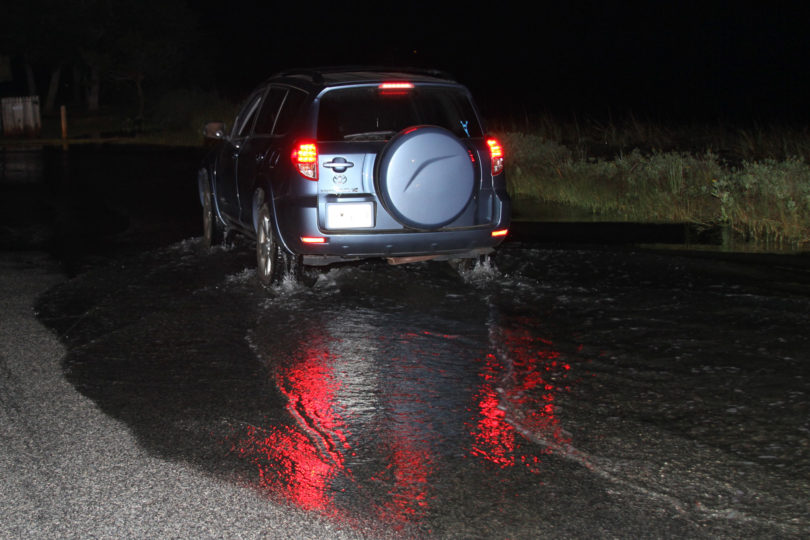Athens, Ga. – The University of Georgia Carl Vinson Institute of Government and Georgia Sea Grant are developing a climate adaptation plan for the barrier island community of Tybee Island through funding from the National Oceanic and Atmospheric Administration.
The recommendations developed by the project, titled the Sea Grant Community Climate Adaptation Initiative, will help the city of Tybee Island prepare for and adapt to sea level rise through appropriate local ordinances, infrastructural improvements and other municipal actions.
“This will be the first time in Georgia that we will have a barrier island community look at sea level rise adaptation,” said Jason Evans, a lead team member on the project. Evans is an environmental sustainability analyst with the Vinson Institute’s environmental policy program, where he helps state and local leaders examine and develop comprehensive environmental management policies and practices.
The plan will be developed through a series of workshops with the Tybee Island community in which stakeholders will identify vulnerable assets—such as infrastructure, housing stock and critical facilities—and formulate measures to deal with problems like flooding and more frequent high tides.
To facilitate the planning process, the team will use two models to predict future sea level rise. A program to assist decision-making known as the Vulnerability Consequences Adaptation Planning Scenarios will help prioritize the importance of the community’s assets. The Coastal Adaptation to Sea level rise Tool, an advanced geographic information system package, will illustrate the impact of specific storm surges and coastal flooding scenarios.
“We are going to work with the community to come up with a list of vulnerabilities that they see and interface those with very detailed scenario models of sea level rise effects on Tybee Island,” Evans said. “It should help prioritize what the community wants to do in order to mitigate and adapt to the changes.”
Results from these models will be used as a foundation for prioritizing, developing timescales and initiating municipal finance planning for the development of the adaptation action plan. Outreach and extension support from Georgia Sea Grant, the Coastal Resources Division of the Georgia Department of Natural Resources, the UGA Marine Extension Service and other state agencies will be provided throughout the implementation period.
“We have every indication scientifically that sea level rise is going to be affecting us in Georgia, in the nation and around the world,” Evans said. “We hope this project will provide a template for other Georgia communities to follow.”
The National Oceanic and Atmospheric Administration awarded the groups $98,985 for the project.
For more information, contact Evans at jevans@cviog.uga.edu or 706/542-2808.
UGA Vinson Institute
For more than 80 years the Vinson Institute, UGA’s public service and outreach unit, has worked with public officials throughout Georgia and around the world to improve governance and people’s lives. For more information on the Vinson Institute, see www.vinsoninstitute.org.
Georgia Sea Grant
Georgia Sea Grant is part of a national program within the National Oceanic and Atmospheric Administration that channels funds into colleges, universities and research institutes throughout Georgia to support local research, education and outreach. Georgia Sea Grant is housed at UGA, a land- and sea-grant institution. For more information on Georgia Sea Grant, see http://georgiaseagrant.uga.edu.








